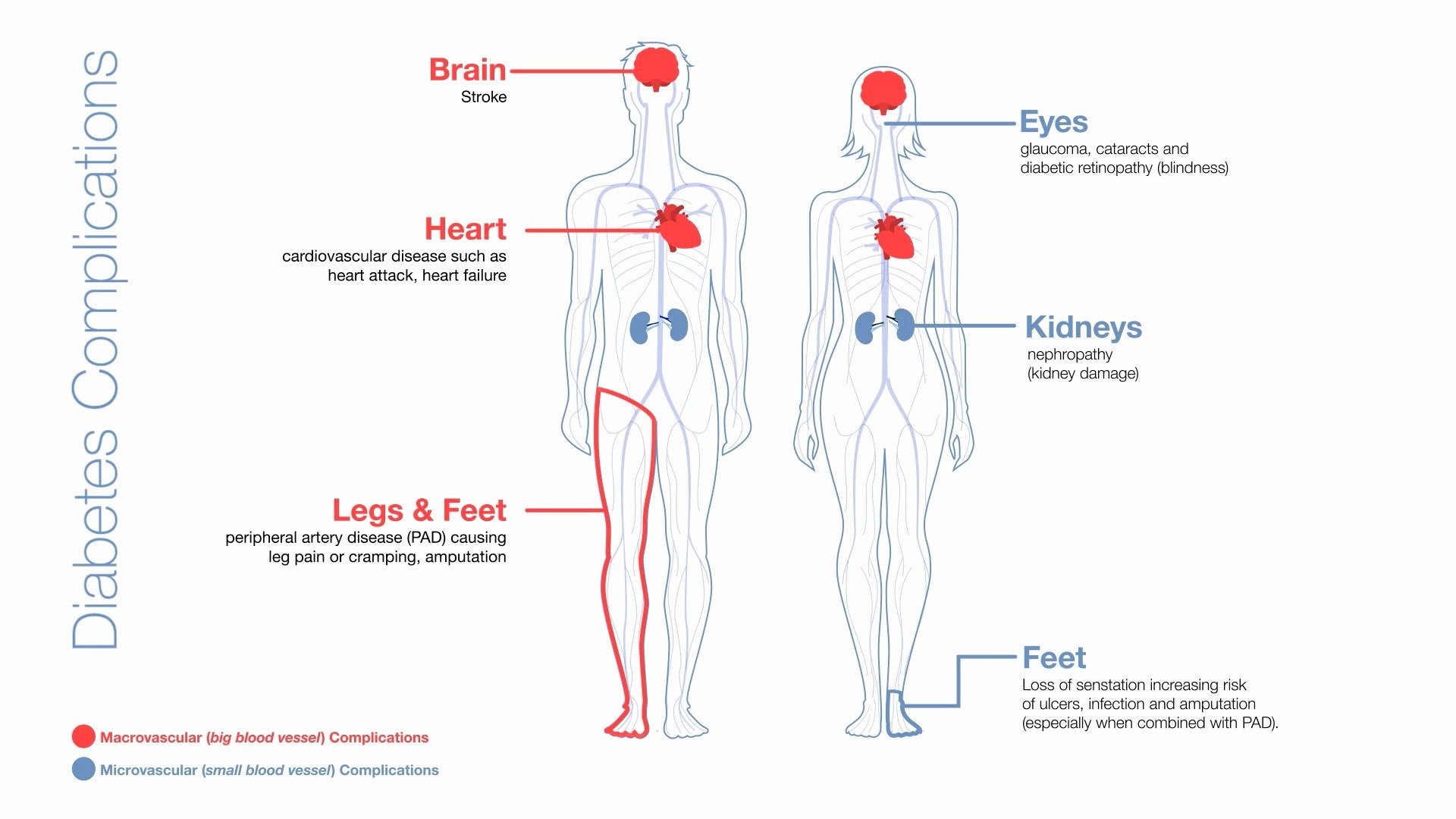
Over time, having diabetes can put us at risk for severe health issues but the good news is that early treatment can help to prevent complications. Let’s find out what we can do to keep diabetes-related health complications at bay.
What are the complications of diabetes?
With diabetes, excess sugar builds up in the bloodstream instead of being used for energy. Over time and poorly managed, high levels of blood sugar in our bodies can damage large (macrovascular) and small (microvascular) blood vessels.
Macrovascular complications include:
- heart disease (heart attack, heart failure)
- stroke
- amputations
Microvascular complications include:
- Sores and serious infections
- Eye issues that can lead to loss of sight
- Nerve damage causing pain, burning, tingling and even loss of sensation
- Digestion issues
- Kidney problems
How important is timing to get blood sugar to target?
Extensive research has shown that good blood sugar control right from the start in people newly diagnosed with type 2 diabetes leads to fewer microvascular complications and even fewer heart attacks in the future. A very large study of people newly diagnosed with type 2 showed that achieving an A1C of less than or equal to 7.0% reduced the risk of complications such as eye disease and kidney disease within the first 10 years.
How can I avoid diabetes complications?
Manage your blood sugar: Managing your blood sugar levels is essential in helping prevent health complications long-term. In addition to checking your blood sugar levels regularly at home to ensure things are on track, it’s important to do an A1C (blood) test that measures your blood sugar levels over an extended period of time.You should be doing an A1C test every three months if your blood sugar levels aren’t on track and every six months when levels are stabilized.
Maintain a healthy lifestyle: We know the merits of a good diet and regular exercise for better blood sugar management. But remember that it’s also important to avoid smoking and excess alcohol to prevent future diabetes complications. Smoking is the greatest single lifestyle risk for developing diabetes complications because it increases blood pressure and negatively affects blood vessels. Alcohol too can increase blood pressure and cholesterol levels.
Get routine screenings: Regular eye, foot and teeth exams can catch issues early and prevent more serious conditions down the road. Similarly, keep on top of potential kidney and heart issues by routinely checking your blood pressure, kidney function and cholesterol levels.
Consider medications as needed: While lifestyle changes are important, remember that medications too are usually required to help you manage your diabetes better. In fact, sometimes a combination of clinical therapies may be started, even at the time of diabetes diagnosis. The important thing is that you aim to reach your optimal blood sugar goals sooner than later.
What should I ask my diabetes healthcare team?
In taking a more active role in preventing diabetes-related health complications, consider speaking to your healthcare team about how you can work together to better manage your diabetes. Here are some questions to discuss:
- Am I reaching my blood sugar targets?
- How can I better reach my targets?
- Are there any medications that would help me in better managing my diabetes now and in the future?
- What else can I be doing now to prevent diabetes-related complications down the road?
While the thought of having diabetes-related complications in the future is scary, remember that you can play a major role in preventing these issues starting right now. Managing your blood sugar levels is a key way to ensure fewer health problems related to your diabetes over time. And if you’re struggling to meet your targets, speak to your physician or other diabetes healthcare provider to get back on track. Remember, you’re in control of your diabetes.



